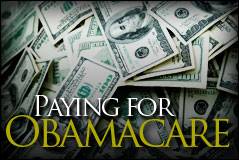Media
Reps to Guv: Reject Medicaid Expansion
 In July, 45 members of the Pennsylvania House of Representatives sent a letter to Gov. Corbett calling for him to opt out of the Medicaid expansion and the insurance exchange provisions of the Affordable Care Act (ACA), often dubbed Obamacare:
In July, 45 members of the Pennsylvania House of Representatives sent a letter to Gov. Corbett calling for him to opt out of the Medicaid expansion and the insurance exchange provisions of the Affordable Care Act (ACA), often dubbed Obamacare:
We write to urge you to opt out of the Medicaid provision of the ACA which represents a costly government expansion that is sure to increase the cost of living for our residents and severely harm the economic growth of our Commonwealth. As you are aware, massive entitlement expansion of the Medicaid program would add a $2 billion tax burden to residents of our Commonwealth.
Additionally, we urge you to opt out of creating the insurance “exchanges” that we believe will translate into higher insurance premiums for our hardworking residents. This belief is corroborated by the Congressional Budget Office which shows that insurance premiums available on state exchanges will only continue to increase under the ACA. At a time when our state is focused on job creation and economic growth, the harm imposed by these provisions will not serve the best interest of our Commonwealth’s residents.
So far, six states have indicated they will reject the expansion, and five are leaning towards opting out. Seven states have decided not to implement an insurance exchange.
Last week, the Heritage Foundation published new estimates of the cost of the Medicaid expansion. In total, newly eligible Medicaid recipients in Pennsylvania would cost more than $21 billion from 2014-2022. The state share of this cost would range from $1.3 billion to $5.5 billion, depending on the federal reimbursement rates.
The ACA called for the federal government, with taxpayer money, to fully fund the costs of expansion in the first three years, and fund 90 percent of the costs in the following years. President Obama’s 2013 budget would cut this reimbursement rate and blend it with current Medicaid payment rates. This change is reflected in the $5.5 billion cost to Pennsylvania and is proof state lawmakers shouldn’t trust the federal government to maintain generous reimbursement rates.
Regardless of the reimbursement rate, taxpayers will pay more in both state and federal taxes to expand a program that is unsustainable.